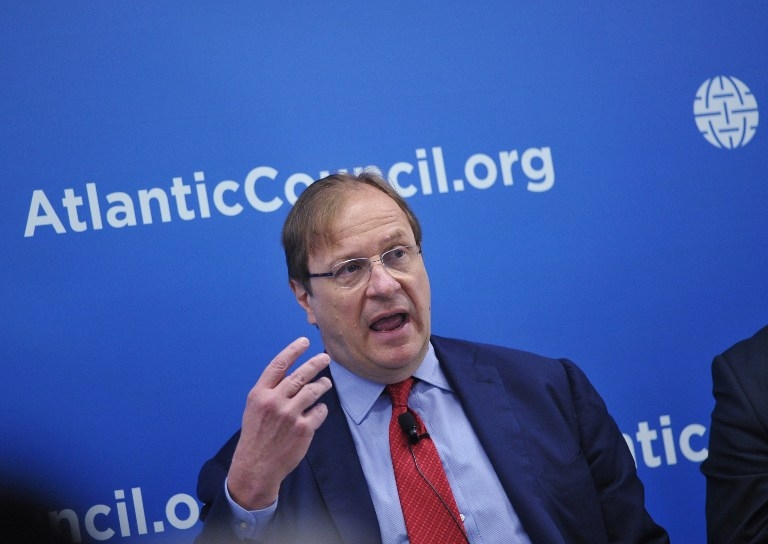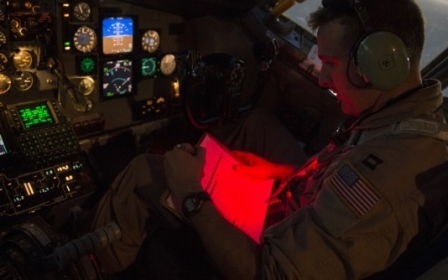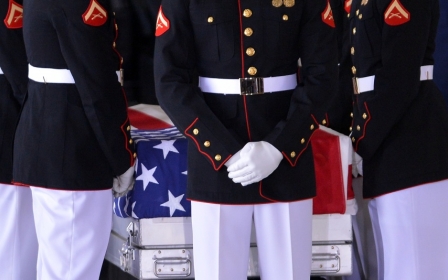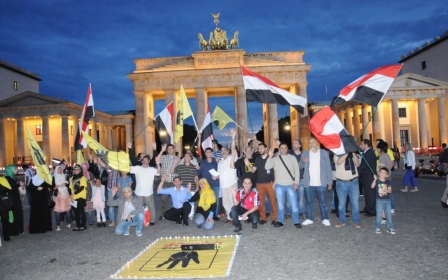Washington's experts recruit 'Call of Duty' creator

by Dan De Luce
A Washington think tank is recruiting the mastermind behind the best-selling "Call of Duty" video games to help policy wonks imagine future wars America may have to fight.
Dave Anthony, whose blockbuster gaming franchise has earned billions of dollars, is among a group of writers and producers enlisted by the Atlantic Council to look at how armed conflicts might evolve in the 21st Century.
The initiative, "The Art of Future War Project," which launches next week, was born when Steven Grundman, a former Pentagon official now at the Atlantic Council, found himself impressed by the story line of a video game his son was playing.
The game, "Call of Duty: Black Ops II," depicts a cold war set in 2025 between China and the United States, with the rival powers vying for coveted rare earth elements.
"He was struck how realistic our portrayal in 'Call of Duty: Black Ops II' was of a future conflict," Anthony told AFP in an interview.
To come up with that game's plot, Anthony gathered an eclectic group that included screenwriter David Goyer, who worked on the Batman films; author Peter Singer who has written about drone warfare; and Oliver North, the retired Marine officer turned television personality who rose to fame in the Iran-Contra scandal of the 1980s.
"You get everybody in a room like that, and all the different perspectives come together," Anthony said from his home in Bel Air, California.
"That combination was fascinating. What I would like to bring to Washington is that kind of thinking."
The British-born Anthony, 41, said there is no shortage of scenarios outlining future threats to the United States, with a plethora of experts, books and films forecasting dangers on the horizon.
"The problem is we're not preparing for it. And the government is not set up to prepare for it. That's what I want to question.
"What can we do about that?" Anthony said
"The stock answers are -- 'well, we don't have the money for it' or 'we can't possibly predict what's coming next so why bother.' That's what I want to blow apart."
Challenging assumptions
The Atlantic Council said it had sought out Anthony because national security decision makers cannot keep up with the frenetic pace of change in the world, and that "new voices" are needed to make sense of a chaotic landscape.
"Writers, directors and producers and other artists bring to bear observations derived from wholly different experiences in the creative world," the council said in a statement.
"They can ask different kinds of questions that will challenge assumptions and status quo ways of tackling some of today’s toughest national security problems."
Instead of a power point presentation, common at think tanks, Anthony plans to show slick videos when he appears at the program's launch in Washington on Tuesday.
One of them will force the audience to confront the possibility of an assault in Las Vegas similar to the 2008 attacks on Mumbai.
Anthony, whose "Call of Duty" series has a hotly-anticipated new installment due out in November, said his experience running a multi-billion dollar production company has some parallels to government work.
There are billions of dollars at stake, intense pressures and "inflexible" thinking among corporate executives that has to be overcome.
The US government and military also face a dilemma trying to adapt amid uncertainty, but Anthony argues the greatest danger is refusing to take any risks.
"The way I like to think about it is the next attack has already happened, someone has already thought of it. How do you look at all the ideas that are out there?" he said.
"The problem is the next attack is very unlikely to be the same as the previous attack."
As the US presses an air war against the Islamic State group in Iraq and Syria, the potential danger from the militants will not come in a conventional way, he said.
"The threat may well be that you have 100 ISIL (IS) loyalists in the country, today right now as we speak, and who may simultaneously attack soft targets.
"I think this is going to be the next 9/11."
It was time to start preparing for such dire scenarios, he said.
"Why are our heads in the sand -- pretending to ourselves that this won't happen on US soil? ...What could we be doing about that right now?"
New MEE newsletter: Jerusalem Dispatch
Sign up to get the latest insights and analysis on Israel-Palestine, alongside Turkey Unpacked and other MEE newsletters
Middle East Eye delivers independent and unrivalled coverage and analysis of the Middle East, North Africa and beyond. To learn more about republishing this content and the associated fees, please fill out this form. More about MEE can be found here.




